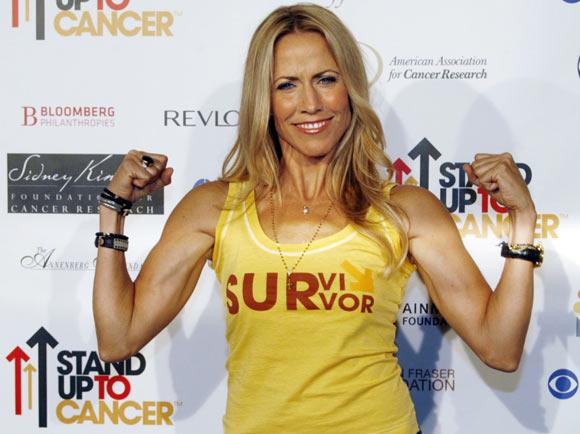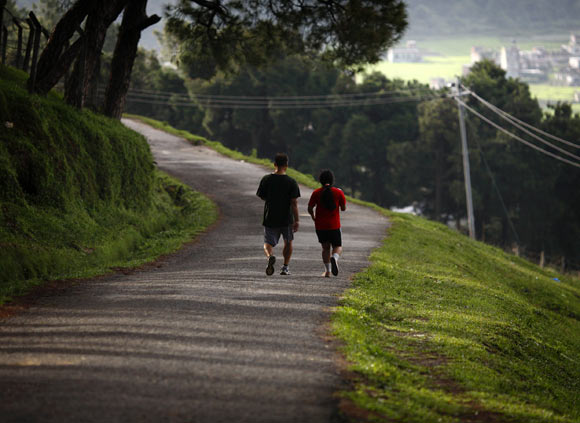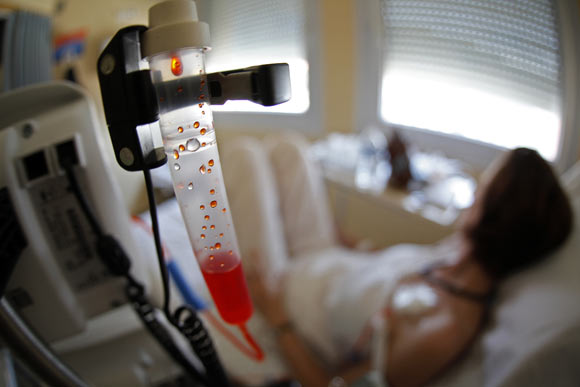
There are several myths around breast cancer. Paloma Sharma traces the risk factors, lists preventive measures and counts the facts about the dreaded disease.
Sheryl Crow had it. Julia Child had it. You could have it too. With the exception of non-melanoma skin cancers, breast cancer accounts for 22.9 per cent of all cancers affecting women. Back in the spotlight due to Angelina Jolie's preventive double mastectomy, breast cancer is said to affect 1 in 28 Indian women according to Tata Memorial Hospital's data.
If you're an urban Indian woman, your risk of developing breast cancer is as high as 1 in 22. But fret not, here's all you need to know about breast cancer and how not to put yourself at risk.
Although the exact cause of breast cancer has not yet been determined, research has been able to identify certain risk factors that may up your chances of developing it. These include:
Genetic Factors
Mutation of tumour suppressing genes such as BRCA1, BRCA2, PTEN and TP53 does contribute to the risk of developing breast cancer but accounts for only 5-10 per cent of all cases.
Medical Factors
Medical conditions such as benign fibrocystic breast changes containing lobular carcinoma in situ and atypical hyperplasia may also act as indicators to a future risk of breast cancer.
Lifestyle:
Other Risk Factors:

There is no sure way to preventing breast cancer but the chances of developing it can be reduced considerably by being alert and active. It is important to keep an eye out for changes so that even if the cancer is developing, it can be diagnosed at the earliest stage possible for successful treatment. You too can lower your risk of developing breast cancer by following some simple steps:
Check Yourself
Lumps found in the breasts, changes in skin formation, change in nipple structure, skin dimpling and clear liquid or blood oozing from the nipples are clear signs of being at risk of developing/having developed breast cancer. If any of these are found, a doctor must be consulted immediately.
Make Healthier Choices
Put down that one last glass of your favourite cocktail, throw away that lighter and go for a long, relaxing walk instead. Alcohol, smoking tobacco and being overweight have been linked to developing breast cancer. Indulging in outdoor activity and swapping that burger for some salad can lower your risk considerable.
Breastfeed
If you're a new mother, breastfeeding could offer more than just nurturing and bonding with your baby. Breastfeeding is shown to have lowered the risk of developing breast cancer, especially if the feeding period lasts from 1.5 to 2 years.

Progress is slowly being made in the fields of breast cancer awareness, diagnosis and treatment in India. However, several popular yet misleading notions about breast cancer exist. A few of these include:
Myth: Men don't develop breast cancer.
Fact: Not only human males but all mammals can develop breast cancer. Although women are 100 times more likely to develop breast cancer, men too are affected.
---
Myth: Excess intake of caffeine causes breast cancer.
Fact: No relationship between the intake of caffeine and breast cancer has been proven. In fact, some studies seem to suggest that consuming caffeine can actually lower the risk of developing breast cancer.
---
Myth: Women who have breast implants have a higher risk of developing breast cancer.
Fact: Silicone breast implants can cause formation of scar tissue within the breasts but this does not put women who have undergone breast augmentation surgery at risk of developing breast cancer.
---
Myth: Women with smaller breasts are at a lesser risk of developing breast cancer.
Fact: No link has been proven between breast size and the risk of developing breast cancer.
---
Myth: There is no chance of developing breast cancer after a mastectomy.
Fact: A mastectomy may be done during the treatment or as a preventive measure and though it brings down the risk of developing breast cancer considerably, it does not eliminate the risk completely. Some women develop breast cancer even after having a mastectomy or if the tumour has spread to other parts of the body, a mastectomy may not be as effective.

Developing breast cancer can be the most gruelling experience in a person's life. However, there is always hope. Sandra Fernandes, Co-Pastor of New Life Church, in Bandra, Mumbai shares her story:
"Initially, when we first learnt, it was very disturbing," says Fernandes, "but we soon decided that I would go through the treatment of chemotherapy, surgery and radiation and come out victorious. A few days after chemo were painful and depressing. The side effects included weakness, loss of appetite and hair loss but through prayer and the loving support of family and church friends the painful months of treatment passed by successfully. Today after about seven-and-a-half years I want to thank God who has led me in triumphant victory."
Fernandes made it out of the darkness but not all women are as lucky. With cases of breast cancer in India increasing at alarming rates in both older and younger women, at 16 per cent and 11 per cent respectively, doctors and other health care professionals have much to be concerned about. But the issue of breast cancer in India is a multi-faceted one, especially due to disproportionate development and the great urban-rural divide.
Dr Bhavin Jadav, a surgeon practicing in Australia, believes that healthier lifestyles are the need of the hour and that the government has a great role to play in breast cancer awareness and treatment, "Breast cancer is sure not being taken seriously enough in India," laments Dr Jadav.
"We don't see any wide spread awareness campaigns or screening programs by the government. This may be because unfortunately developing countries need to focus on infectious diseases and spend their budget there. Government should spread awareness about self-examination and mammogram as screening procedure and make them a part of public health services."
Ayush Ahuja, a young MBBS grad from Dwarka, Delhi says that the social factor plays a big role in India's dismal attitude towards breast cancer, "We are a very conservative society where few women can even think about discussing such a problem with her family members. Most of the women who come to government hospitals do so when the problem has reached a stage where they are absolutely forced to consult a doctor."
Indeed, breast cancer has a certain amount of stigma attached to it in Indian society but that has to be done away with considering that it has been the cause of 13.7 per cent of all cancer deaths in women world wide in 2008. And while an apple a day does keep the doctor away, getting your self a mammogram wouldn't be such a bad idea after all.